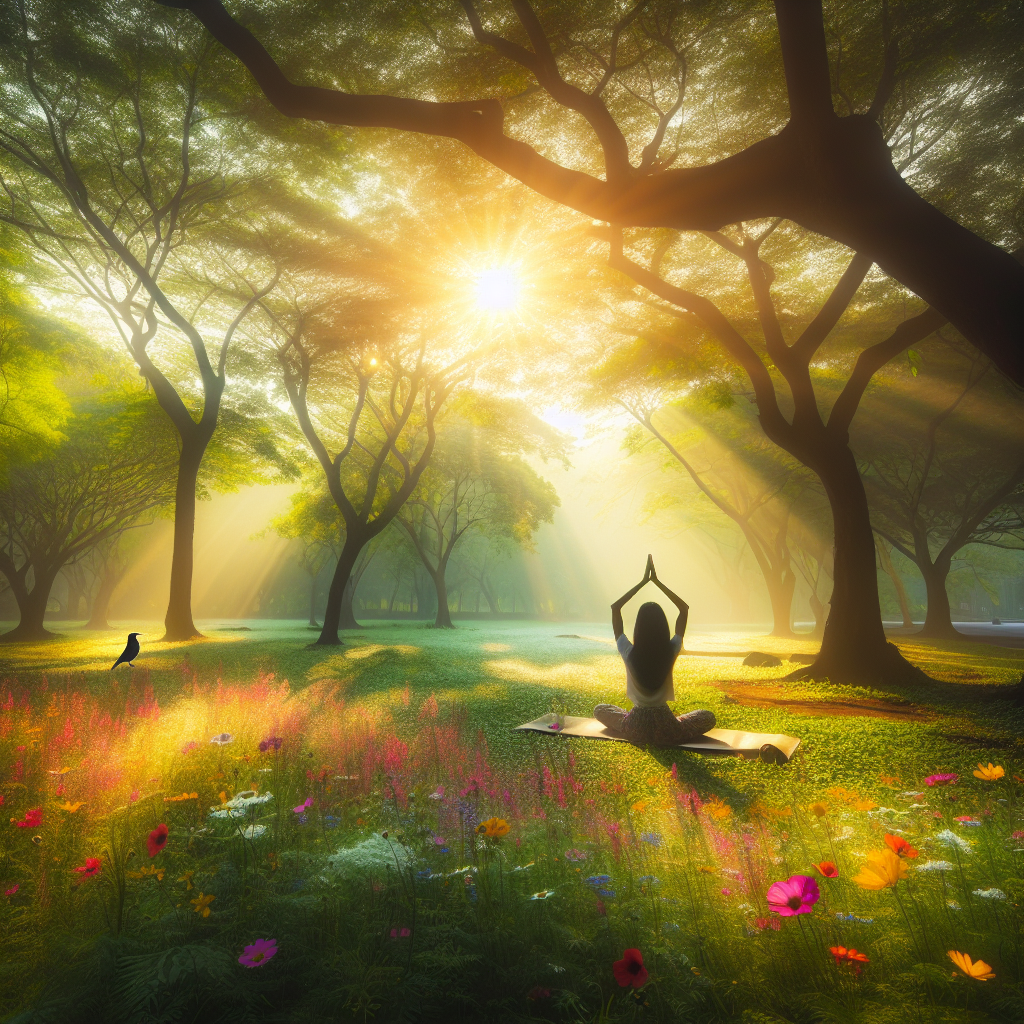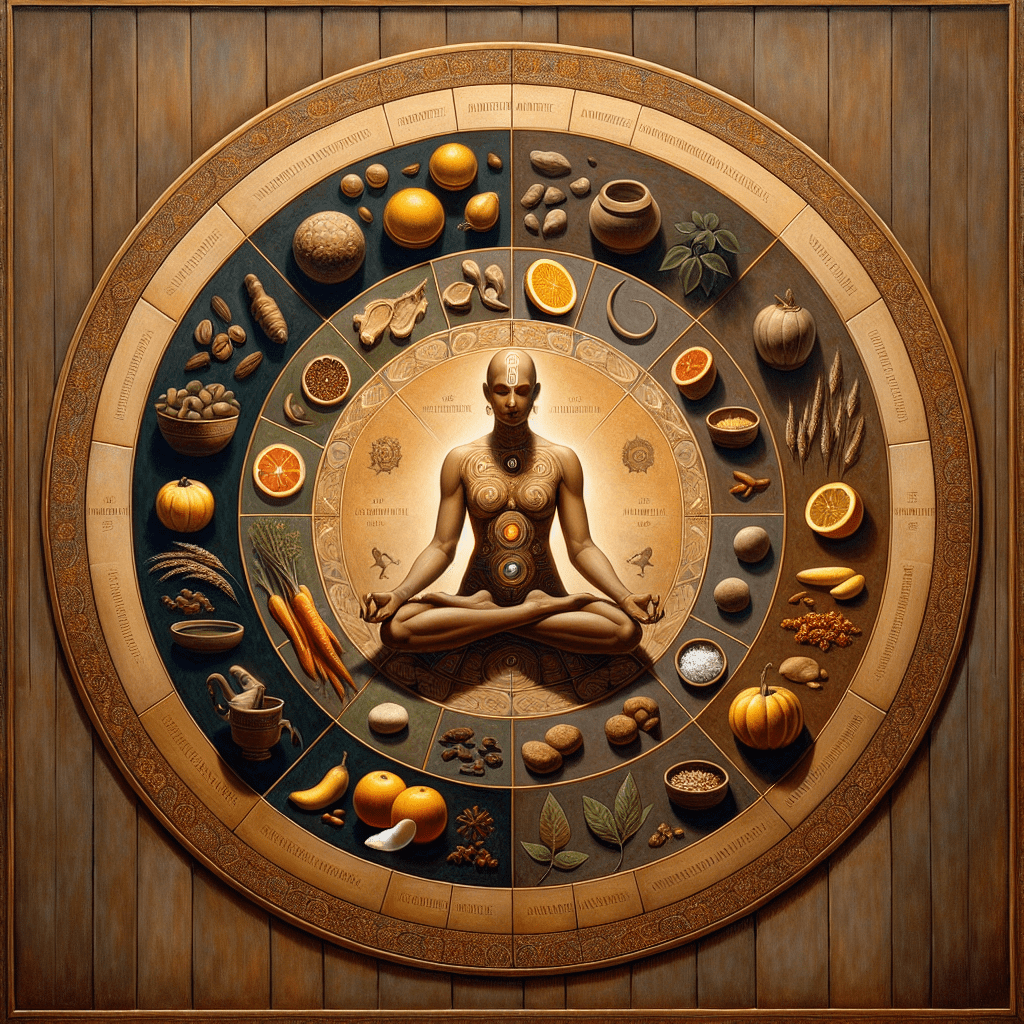As the leaves change color and fall from trees, as the first snowflakes drift down from winter skies, or as spring flowers begin to bloom, have you ever noticed subtle shifts in your mood? You’re not alone. The changing seasons affect us in profound ways that go far beyond the need to swap our wardrobes or adjust our thermostats.
Our ancestors lived in harmony with nature’s rhythms, adapting their activities, diets, and lifestyles to the turning of the seasonal wheel. In today’s modern world, we’ve become somewhat disconnected from these natural cycles, yet our bodies and minds still respond to them on a fundamental level. How does changing seasons impact human mental health? The answer lies in the intricate dance between nature’s patterns and our psychological wellbeing.
Eastern healing traditions have long recognized this connection, viewing humans as microcosms of the natural world. When seasons shift outside, something shifts within us too. This article explores five surprising ways seasonal changes affect your mental health and offers wisdom from both modern research and ancient Eastern philosophies to help you maintain balance throughout the year.
The Winter Blues: Understanding Seasonal Affective Disorder
As daylight hours shorten during fall and winter months, many people experience a form of depression known as Seasonal Affective Disorder, or SAD. This isn’t simply feeling a bit down because it’s cold outside – it’s a recognized condition that affects approximately 5% of adults in the United States, with symptoms lasting about 40% of the year.
The reduced exposure to sunlight during winter months disrupts our body’s internal clock and may cause a drop in serotonin, a brain chemical that affects mood. It can also lead to increased production of melatonin, which regulates sleep and can make you feel more lethargic.
Common symptoms of SAD include:
– Persistent feelings of sadness or emptiness
– Loss of interest in activities once enjoyed
– Low energy and increased fatigue
– Changes in sleep patterns and appetite
– Difficulty concentrating
– Feelings of hopelessness
Eastern medicine views SAD through a different lens – as an imbalance between yin and yang energies. Winter is naturally a more yin time, characterized by darkness, coldness, and inward energy. When this yin energy becomes excessive without sufficient yang (light, warmth, activity) to balance it, emotional and physical symptoms can manifest.
“In Eastern philosophy, balance is key to wellbeing,” explains Dr. Lin Chen, a practitioner of traditional Chinese medicine. “Winter calls for more restorative practices and nourishing foods to maintain inner warmth and vitality during the naturally more yin season.”
Emotional Transitions: The Grief of Seasonal Goodbye
Have you ever felt a strange sense of loss when summer ends? That wistful feeling watching the last beach day slip away isn’t unusual – it’s a form of transition grief. How does changing seasons impact human mental health during these pivotal moments? Research suggests these transition periods can trigger significant emotional responses.
Autumn, in particular, often brings complex feelings. While many enjoy the cozy aesthetics of fall, there’s often an underlying sadness as we bid farewell to summer’s freedom and light. This phenomenon reflects our deep psychological connection to seasonal patterns.
Eastern healing traditions offer valuable insights for managing these emotional transitions. Mindfulness practices, which have roots in Eastern philosophy, can help us observe our feelings without judgment and accept the natural flow of change.
A simple mindfulness practice for seasonal transitions:
1. Take a few minutes each day to sit quietly and observe your breath
2. Notice any emotions arising about the changing season without trying to change them
3. Acknowledge that change is natural and cyclical
4. Visualize yourself moving harmoniously with the seasonal shift
“Meditation teaches us to be present with what is,” says meditation teacher Maya Wong. “When we resist seasonal changes, we create suffering. When we flow with them, we find peace even in transition.”
Darkness and Depression: The Circadian Connection
As days grow shorter in fall and winter, our exposure to natural light decreases, disrupting our circadian rhythms – the internal processes that regulate our sleep-wake cycle. This disruption can significantly impact mood and energy levels, increasing the risk of depression.
Research published in the Journal of Affective Disorders found that even people without diagnosed SAD experience mood fluctuations corresponding with seasonal light changes. Our bodies are exquisitely sensitive to these shifts, with light exposure directly affecting neurotransmitter production and hormonal balance.
Eastern healing traditions have long recognized the importance of aligning with natural light cycles. In traditional Chinese medicine, the concept of “rising with the sun and resting with the moon” promotes harmony between our internal systems and environmental patterns.
Practices like Qi Gong and Tai Chi can be particularly beneficial during darker months. These gentle movement exercises cultivate and balance qi (life energy), promoting both physical and emotional wellbeing. Regular practice can help maintain internal equilibrium despite external seasonal disruptions.
“Qi Gong helps us maintain our internal summer even during winter’s darkness,” explains Tai Chi master James Chen. “Through mindful movement and breath, we cultivate our inner light when external light is diminished.”
Spring Anxiety: The Surprising Pressure of Renewal
While many welcome spring’s arrival, this season can trigger unexpected anxiety for others. Research shows a concerning spike in anxiety disorders and even suicide rates during spring months, particularly among younger populations.
How does changing seasons impact human mental health during spring? Several factors contribute to this counterintuitive reaction:
– Rapid environmental changes can be overstimulating
– Increased daylight and energy can exacerbate existing anxiety
– Social pressure to feel happy during “beautiful weather” creates dissonance
– Allergies and hormonal fluctuations can impact mood and well-being
Eastern medicine offers a nuanced understanding of spring anxiety through the Five Element Theory, which associates spring with the Wood element and liver energy. When this energy becomes imbalanced, it can manifest as irritability, frustration, and anxiety.
Herbal remedies play an important role in Eastern approaches to seasonal anxiety. Calming teas like chamomile, lavender, and lemon balm support the nervous system during seasonal transitions. EASTCHI AI personalizes herbal recommendations based on individual constitution types and specific seasonal challenges.
“Spring represents rapid growth and movement in nature,” explains Eastern nutrition specialist Dr. Sarah Lin. “For sensitive individuals, this external surge can create internal pressure. Balancing foods and herbs that calm liver qi are especially beneficial during spring transitions.”
Physical Activity and Mood: Seasonal Lifestyle Shifts
The changing seasons inevitably affect our activity levels and daily routines. When temperatures drop or weather becomes unpleasant, many people become more sedentary, spending more time indoors and getting less physical exercise. This seasonal shift in activity directly impacts mental health.
Regular physical movement is a powerful mood regulator, boosting endorphins and reducing stress hormones. When seasonal changes disrupt exercise patterns, mood often suffers as a result. A study in the American Journal of Preventive Medicine found that physical activity levels drop significantly during winter months, corresponding with increased reports of depressive symptoms.
Eastern healing traditions emphasize the connection between physical movement and emotional wellbeing, viewing the body and mind as an integrated whole rather than separate entities. According to these traditions, stagnant physical energy leads to stagnant emotional energy.
Adapting your activity to align with each season is a principle deeply embedded in Eastern wellness philosophies:
– Spring: Gentle stretching and expansive movements that mirror the season’s energy
– Summer: More vigorous, outward-focused activities during this yang-dominant season
– Fall: Grounding exercises that help manage the transition to more yin energy
– Winter: Slower, more restorative movements that conserve and build energy
“In Eastern medicine, we don’t fight against the season’s nature but work with it,” says movement therapist Lisa Wong. “Winter naturally calls for more rest and conservation, while summer invites expansion and activity. Honoring these patterns helps maintain both physical and emotional balance.”
Practical Strategies for Seasonal Mental Wellness
Understanding how changing seasons impact human mental health is the first step toward developing effective coping strategies. By combining ancient Eastern wisdom with modern approaches, you can create a personalized plan for year-round emotional wellbeing.
Light Therapy
Light therapy involves sitting near a special light box that mimics natural outdoor light for about 20-30 minutes each day. This can help regulate circadian rhythms and boost serotonin production during darker months. Eastern practitioners often recommend morning light exposure to align with natural qi cycles.
Mindful Nutrition
Eastern medicine has always emphasized seasonal eating to support the body’s changing needs throughout the year. EASTCHI AI provides customized nutrition plans based on your constitutional type and the current season, recommending:
– Winter: Warming foods like soups, stews, and root vegetables
– Spring: Cleansing foods like leafy greens and sprouted grains
– Summer: Cooling foods like fruits and raw vegetables
– Fall: Grounding foods like squash, apples, and moderate spices
Social Connection
Maintaining social connections becomes even more important during seasons when we naturally withdraw. Eastern philosophy recognizes humans as social beings whose emotional health depends on community connection. Schedule regular gatherings or virtual meetups during winter months to combat isolation.
Mindfulness Practices
Incorporating mindfulness into your daily routine can help you remain centered despite external seasonal shifts. Simple practices like a 5-minute daily meditation, mindful walking, or conscious breathing can significantly reduce seasonal anxiety and mood fluctuations.
Adjust Your Environment
Create living spaces that compensate for seasonal challenges. During winter, increase indoor lighting, incorporate plants, and use essential oils like citrus or mint to create an uplifting atmosphere. During overstimulating seasons, create calm spaces with minimal sensory input.
Embracing Seasonal Wisdom for Year-Round Wellbeing
The changing seasons offer us an opportunity to reconnect with natural rhythms and deepen our understanding of our own psychological patterns. By recognizing how deeply seasons affect our mental health, we can develop proactive strategies rather than being caught off guard by predictable shifts.
Eastern medicine has always viewed humans as integral parts of nature, not separate from it. This perspective offers profound wisdom for navigating seasonal transitions with greater ease and awareness. When we resist seasonal changes, we create internal discord. When we flow with them mindfully, we discover opportunities for growth and healing.
EASTCHI AI at HerbalsZen represents this integrative approach, combining time-tested Eastern wisdom with cutting-edge technology to provide personalized wellness guidance throughout the year. By analyzing your unique constitutional type through Five Element Theory and tracking seasonal patterns, EASTCHI AI can help you anticipate and prepare for the particular challenges each season might bring to your mental health.
As the world around us continues its eternal cycle of change, we can learn to move with these rhythms rather than against them. By understanding how changing seasons impact human mental health, we gain valuable insights into our own nature and discover pathways to more sustainable wellbeing.
The next time you notice your mood shifting with the weather, remember that this connection is both natural and meaningful. With awareness, preparation, and the right support, you can maintain emotional balance throughout the year, finding unique gifts in each season’s distinctive energy.




